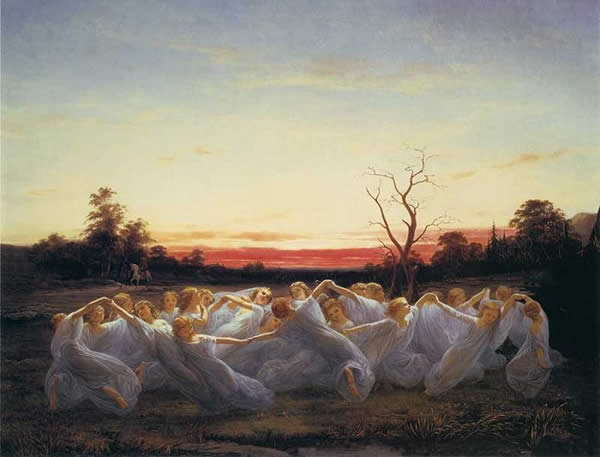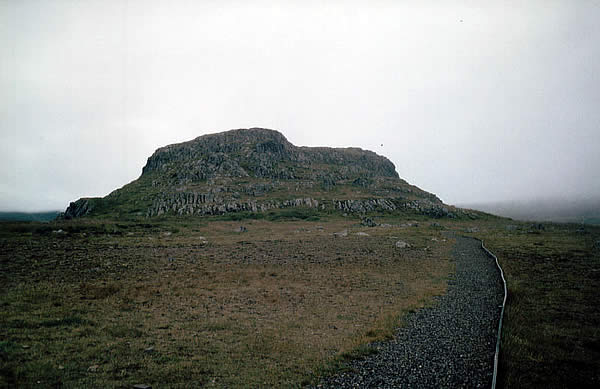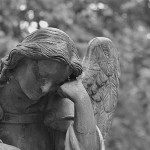Labels are always a fun game to play in Paganism, Polytheism, Heathenry, what-have-you. On the one hand they can be helpful in defining how we see ourselves and what we believe and do – on the other they are only ever a general description and as often as not they divide us instead of bringing us together. I have many labels for myself because my beliefs are complex and layered, and the terms I use may describe what I do, like Druid or Bantuaithech, as much as what I believe, like animist and polytheist. I often tailor what label I use based on who I’m talking to, to some degree: when talking to CRs I use terms like Irish Reconstructionist Polytheist; when talking to neopagans I say witch or Druid; when talking to Heathens I say, well, Heathen usually or seidhrkona. No one label truly describes exactly what I believe or do in its full context so I have no issue having many labels and adding or shedding descriptors when needed. Life evolves and changes and so do I.

Within the context of Heathenry I have toyed for a couple years now with the label of “Álfatrú” for myself as a more precise descriptor of my belief system but I was always a bit hesitant for several reasons. Firstly in English the term is reminiscent of a certain sitcom from the 80’s and that association was strong for me. Secondly, when I first started thinking of this I was fairly new to Heathenry and I wasn’t sure if it was an appropriate term in contrast to Ásatrú or if it even read properly, not having any Icelandic at that point.¹ And thirdly, I must confess that when I tried to Google the term (Google-fu for the win) the few hits I got to English language sites came back to things that were rather perplexing to me and very contrary to my own approach.
I also wanted to avoid any confusion or implication that I was approaching all of the Hidden Folk as deities. Certainly there is overlap, and some of the alfar are counted among the Gods, just as many (most) of the Tuatha De Danann are also the aos sidhe, but not all of the aos sidhe are Gods and not all of the alfar or huldufolk are deities either. Its rather its own system in itself and needs to be understood that way, as a complex system instead of looked at as a simple ‘all this’ or ‘all that’. What makes something a God is a question I contemplate often for example here and here and understanding where I’m coming from on this issue and how the huldufolk and aos sidhe fit into things is important. Whether Gods or not-Gods you respect them and the influence they can and do have on your life. You offer to them to create reciprocity, you seek to live in balance with them, you don’t harm or disrespect their places, and – if you practice the sort of witchcraft I do – you seek to learn from them and ally with (some) of them. So I also had a concern about using a term that might read or imply an elevation of the alfar, in general, to deities or imply that I was replacing the Gods with the huldufolk, along the lines of people who use Vanatru to indicate that they primarily worship the Vanic Gods. Although the Hidden Folk are my main focus, my house spirits and landvaettir are not my Gods and I was genuinely concerned about using a term that might accidentally convey this meaning. The actual system itself is more nuanced than most simple terms easily convey. There are alfar who are Gods, and there are alfar who who are not-Gods, and I wasn’t sure if alfatru as a term would work with this understanding or not.
Reading more about the Icelandic perspective on it, just like gaining a better understanding of the Irish, has I think allowed me to understand what the real meaning of álfatrú is in context. Álfatru simply means ‘belief or faith in elves’. Similarly álfatrúar means believer in elves, and expanding that out álfatrúarfólk means people who believe in elves or more literally ‘elves religious people’. Just like many people of all religious beliefs follow the Fairy Faith, many people are Álfatrúarfólk while following different religions. And just like ‘Fairy Faith’ means belief that the fairy folk exist and have power, so it seems does álfatrú and it includes those layers and nuances of meaning, that inclusion of degrees of power and influences from Gods to minor spirits that I was looking for and already believed in. It is not a belief in and of itself that excludes other things but rather something that describes a specific facet or focus of belief and attendant folk practices. Of all the terms beyond ‘Fairy Faith’ this is the most accurate to what I believe and do, although in my case it is my main focus and just as with my Fairy Witchcraft, I do add religious overtones to it. Of course there are Gods I acknowledge as well, but it is the Hidden Folk, the Good People, who are my main focus.

Belief in and respect of the alfar – ‘álfatrú’ – is a significant thing in Iceland, although one that’s often not well understood by Americans I think. The majority of Icelanders admit to believing in the likely existence of elves, but this belief is the same as most Americans belief in ghosts, that is people won’t rule out the possibility or are open to the idea, rather than firmly believing it. Although some people do believe in them more strongly and more profoundly, putting their faith in the alfar as it were, and some are able to see and interact with them. As in Ireland there is a belief associating the alfar (aka elves) with landmarks including trees and boulders which cannot be interfered with or bad luck and mishaps will ensue. There have been several modern incidents which demonstrate this, including the protesting of road construction that threatened an ‘elf church’ and required a court case and compromise to be reached with the alfar, issues with well drilling, and concerns about the alfar being upset by the idea of a new airport. Often special consultants are brought in who are known to be able to see and speak with the alfar. As with the Irish Fairy Faith, the Icelandic belief in the alfar is not a clear cut or definitive thing but fluid and different from person to person, ranging from superstition to firm belief, from uncertain skepticism to certain faith. It encompasses a variety of expressions and practices as well, from polite respect of places to full offerings and worship.
So, basically, this isn’t something that anyone needs to create or invent as a ‘thing’. It’s not a cleverly made up word, or newly invented term. It’s already a thing and its a term in use in the living culture. It means what Ásatrú means, more or less, but focused on the alfar although it so far lacks any layered overtones of added meaning creating by politics and religious denominations. It is simply a word in a different language for the belief in the Hidden Folk and like Fairy Faith it says as little or as much as we choose to see in it.
I’ve been flirting with the idea of alfatru as a better label for my spirituality than Heathen and certainly than Asatru for a while (at least five years or so) but I was always held back by my own misunderstanding of the term. Realizing what it actually meant – and that it was a real word and not some Americanized thing created out of the same misunderstandings I had been worried about, was a bit of an epiphany for me. Heathen is still a good general term of course, but it lacks the specific; Asatru is one I stopped using years ago precisely because the Aesir are not my main focus and it felt disingenuous to call myself that when most of my beliefs and practices center on the landvaettir and huldufolk (by various names and cultural understandings). Yes it’s an Icelandic term, and my actual beliefs are a mix of Irish, German, Icelandic, general Celtic, and American but for all that Álfatrú is still the single best word to describe my spirituality within a Heathen context.
Do I believe in the alfar? Yes, yes I do. And most of my spirituality centers on my beliefs in the huldufolk (and/or aos sidhe) and the practices associated with those beliefs. So I can call it the Fairy Faith, or creideamh sidhe, in one context, or I can call it Álfatrú in another, but at its core its the same concept and the same general practices just slightly different cultural contexts. So until I find a better word Álfatrú seems to be the most fitting to describe my spirituality from that perspective, something that describes my beliefs and fits in nicely with my wider belief system. In an Irish-American context I use the term Fairy Faith because it conveys precisely a lot of what I believe from that perspective. And both work perfectly within the context of the witchcraft I practice.
- I’m still far from fluent by the way, but I’m working on it. (back)

Patheos Pagan on Facebook.

the Agora on Facebook
Irish-American Witchcraft is published bi-monthly on Tuesdays here on the Agora. Subscribe via RSS or e-mail!
Please use the links to the right to keep on top of activities here on the Agora as well as across the entire Patheos Pagan channel.













